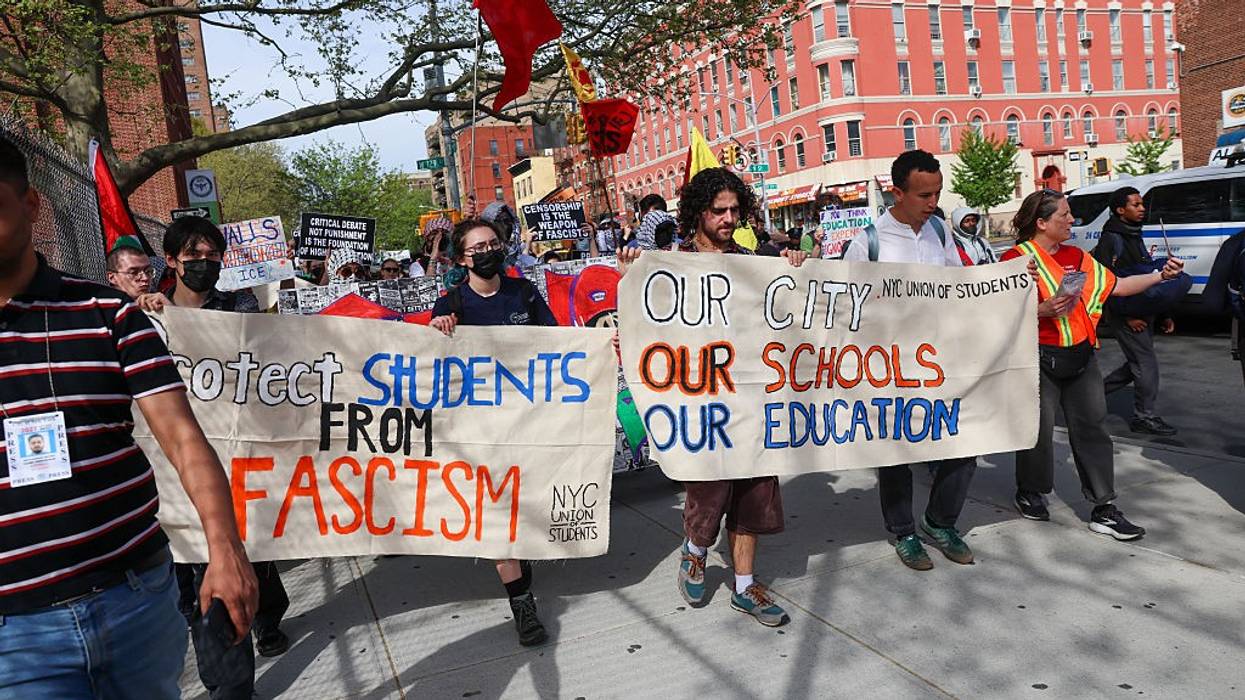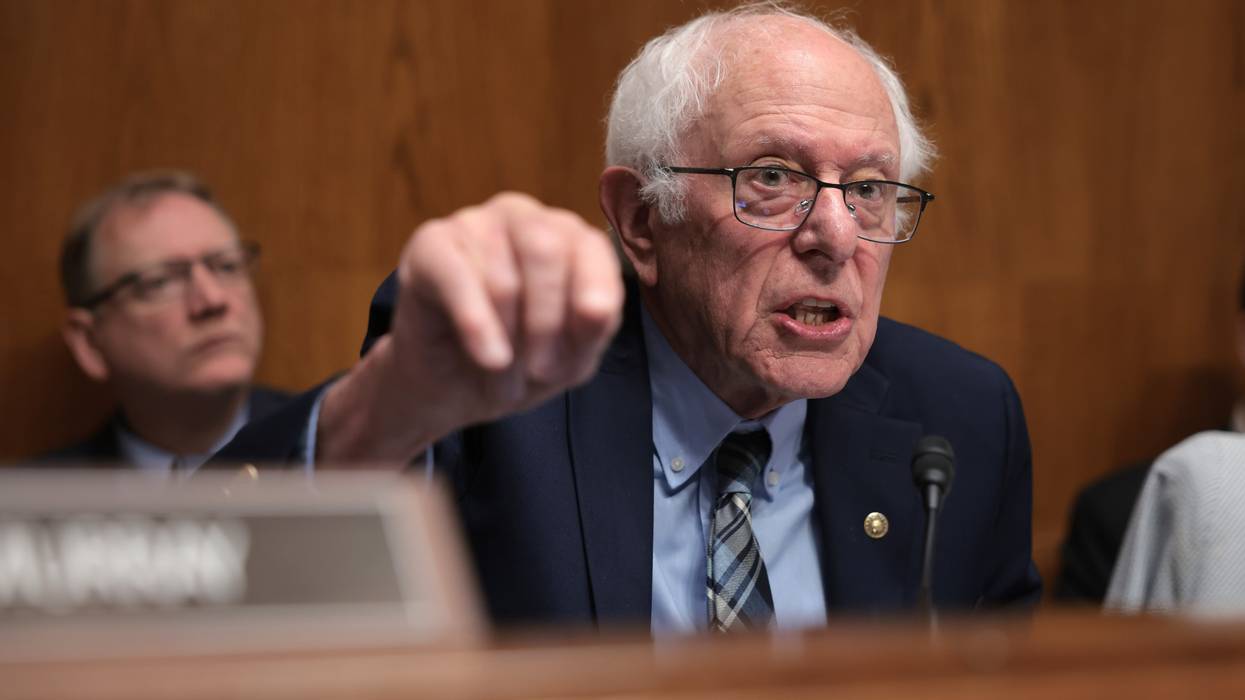Sanders Leads Call for Trump Admin to Ensure Access to Safety Net Programs—Without Red Tape
"Your surprise actions will put millions of American lives in jeopardy by adding new barriers for individuals and families to access critical programs."
Weeks after the Trump administration reversed a federal policy going back nearly three decades that has allowed immigrants to benefit from public health, education, and labor programs, U.S. Sen. Bernie Sanders led a dozen of his Democratic colleagues in demanding that President Donald Trump's Cabinet members undo the "cruel and targeted" action that will "confuse and undermine" families as well as service providers.
Sanders (I-Vt.) spearheaded a letter to Health and Human Services Secretary Robert F. Kennedy Jr., Education Secretary Linda McMahon, Labor Secretary Lori Chavez-DeRemer, and Attorney General Pam Bondi about the administration's reinterpretation of the Personal Responsibility and Work Opportunity Reconciliation Act (PRWORA), which the Trump officials determined had long "improperly extended certain federal public benefits to illegal aliens."
The lawmakers pointed out that the interpretation of PRWORA that was adopted in 1998 already excluded immigrants who were not listed as "qualified" for federal public benefits, but in July 10, the Health and Human Services Department issued a notice to exclude "education, public health, and safety-net programs such as Head Start, community health centers, and the Community Services Block Grants," while the departments of Labor and Education announced similar restrictions.
The senators—including Sens. Elizabeth Warren (D-Mass.) and Alex Padilla (D-Calif.)—said that rescinding the 1998 interpretation of the law will:
- Add unnecessary tape to Head Start programs by requiring families to prove their immigration status;
- Force mental health care providers to waste time screening for citizenship status instead of providing treatment;
- Jeopardize everyone—U.S. citizens and immigrants—who receives assistance for housing, nutrition, utilities, transit, and job training through Community Services Block Grant funding and thus trap more people in poverty;
- Deny career services to immigrants who form parts of their local economies and who would otherwise have been eligible for workforce training programs; and
- Prevent some community members from developing job skills that could serve the U.S. economy.
"Your surprise actions will put millions of American lives in jeopardy by adding new barriers for individuals and families to access critical programs. They will shift costs and add administrative burdens to already strained state and local governments. Furthermore, your actions will have a chilling effect on otherwise eligible families, such as those with U.S. citizen children, lawful permanent residents, and even eligible U.S. citizens, who may lack the requisite paperwork or be deterred from seeking services available to them," the senators wrote. "Not only will the requirements make the delivery of services less efficient for all Americans, they could also lead to racial profiling or other discriminatory practices—beyond the discrimination inherent in the restrictions themselves."
"Your actions will have a chilling effect on otherwise eligible families, such as those with U.S. citizen children, lawful permanent residents, and even eligible U.S. citizens, who may lack the requisite paperwork or be deterred from seeking services available to them."
The lawmakers called on the administration to reverse the policies to "immediately to prevent further harm not only to immigrant communities but to the nation as a whole."
The policy was announced last month amid Trump's ramp-up of his anti-immigration agenda, including through mass deportations, an expansion of immigrant detention capacity, and an attack on birthright citizenship.
"Your collective actions put lives at risk," wrote the senators, "turn back decades of precedent in our country, and undermine what should be shared goals: supporting the health, education, well-being, and economic self-sufficiency of everyone who lives in this country."


